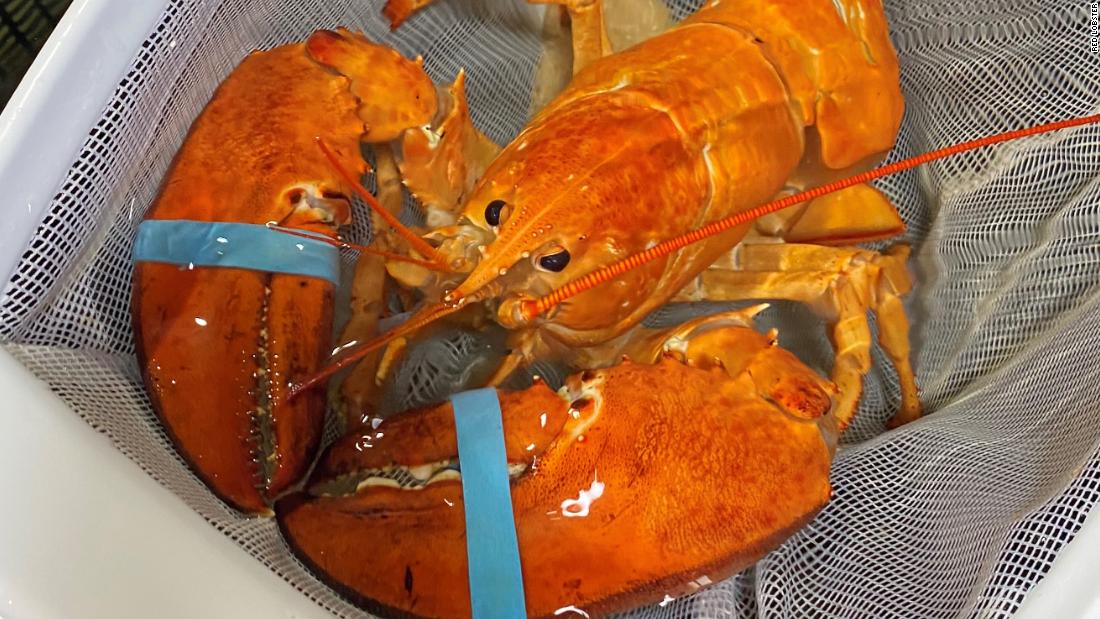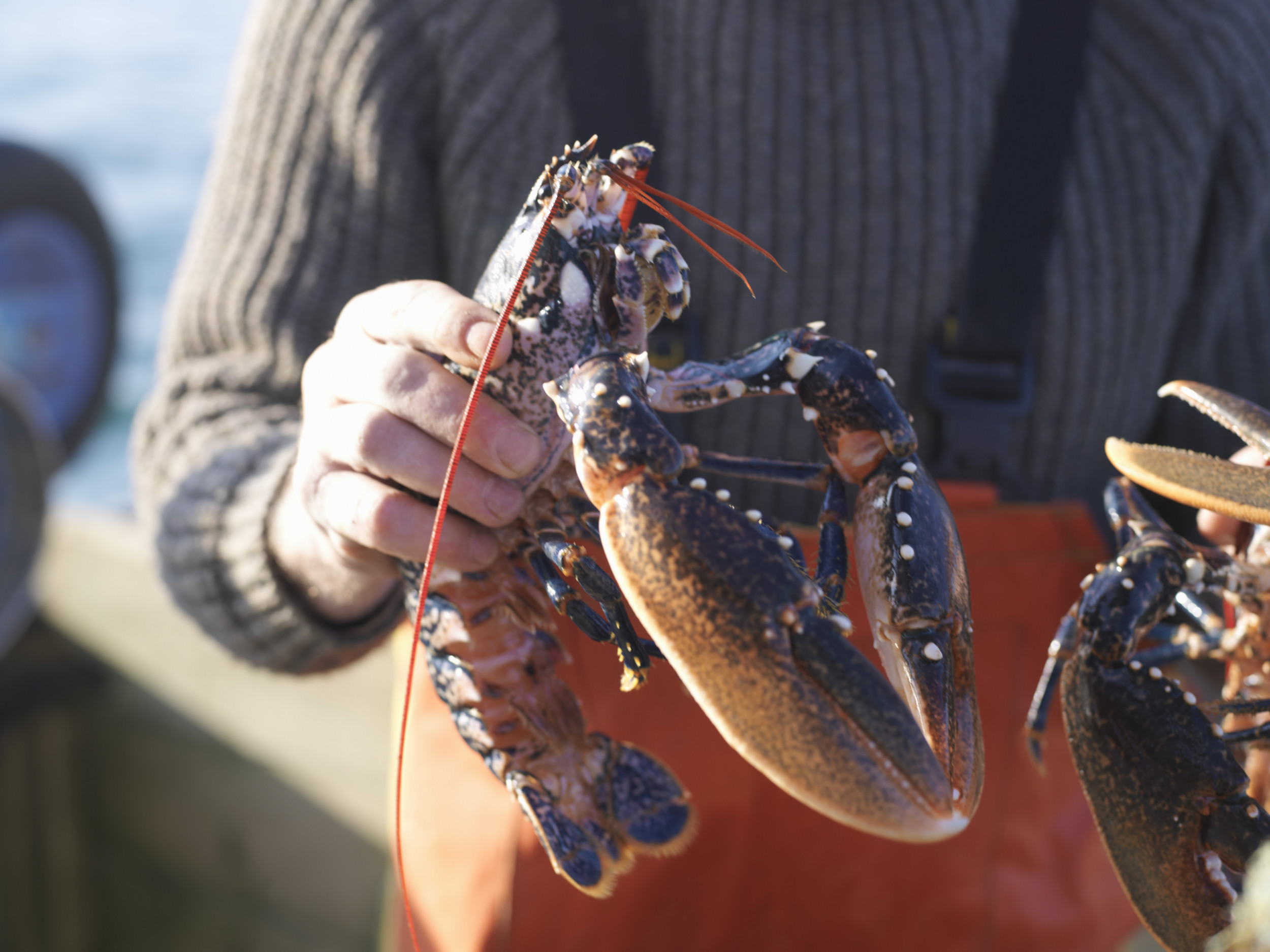- Joined
- Oct 30, 2012
- Reaction score
- 5,522
- Location
- New York State capital district
- Lifestyle
- Strict vegetarian
Meet 'Lucky Blue': 1-in-2-million bright blue lobster caught by father and son in Maine
"We're throwing it back in two weeks," said the mother of Luke Rand, who found the lobster they named "Lucky Blue" off southeast Maine.
A highly unusual blue lobster was caught by lobster fishermen. He'll be turned loose after spending some time on display in an aquarium. I'm hoping at least some people will take another step and see some inherent worth in other animals who are (relatively) commonplace/everyday/normal/boring/...
He IS a stunner- quite a beauty! I can't help wondering if he would be safer in an aquarium (provided his keeper knew how to keep a lobster alive and in good health for years, and not just long enough to be eaten). I'd think he'd be easier for a predator to spot than a normally-colored lobster; that might be why this one's unusual color is so rare.
(This thread formerly titled: "At least, some good news...")
Last edited:


